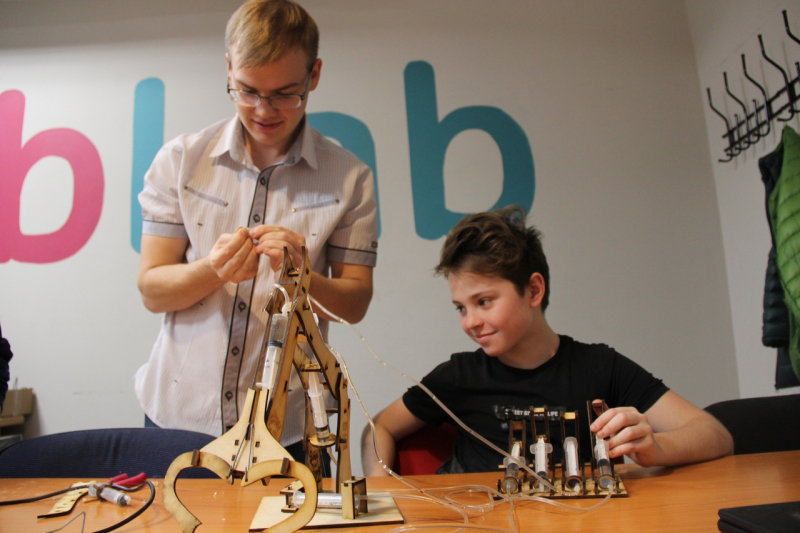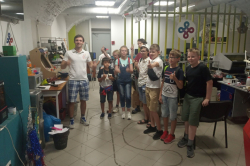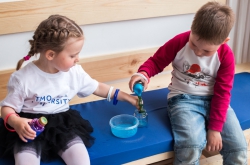ITMO’s children’s technopark offers talented and inquisitive children an opportunity to learn more about science and create their own projects, for example robots or smart devices, or make their first steps in programming and design. It helps them better understand their interests in the early years of their lives, and therefore study and develop better.
The core formats offered by ITMO.KIDS are courses (from 3 to 15 lessons), workshops, lectures, and summer schools. The courses are aimed at school students of second to eighth grades; each goes with a description that includes the age of students that can participate.
As today’s students have a high study load even at the early stages of their education, the lectures at ITMO.KIDS take place mostly on weekends. ITMO.KIDS envelops five fields that a child can get an education in: robotics, IT, natural sciences, design, and business.
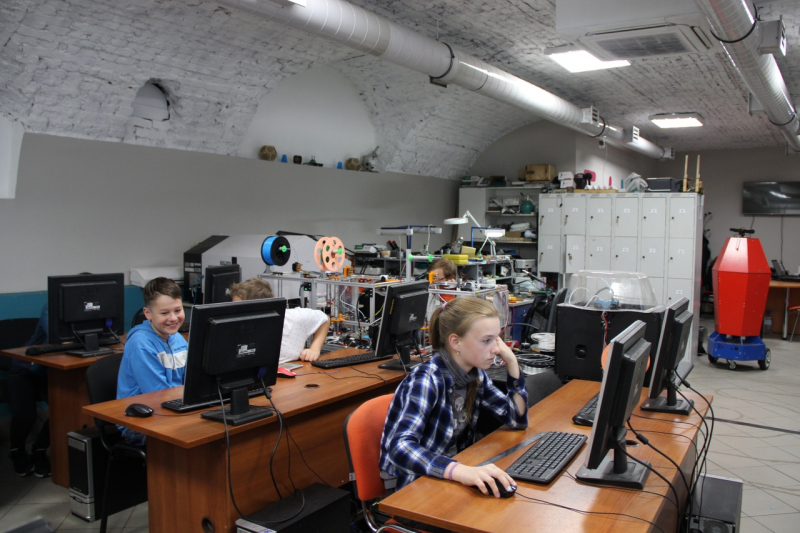
“We work with children of second to eighth grades. To the youngest, we teach electronics and the basics of computer engineering. As for the older kids, we teach them to program in Python and explain the basics of writing one’s own code. We have lots of courses in every field, and we are currently launching several new ones, for example courses on working with vector graphics and graphic animation. We’ll also be launching a course on creating a smart lamp soon. Children will be creating their original smart lamp that will radiate all colors of the rainbow depending on how it has been programmed,” says Alexey Schekoldin.
Formats
The children’s technopark offers both short-term events like workshops and lectures and long-term ones such as educational courses (3-15 lessons depending on the children’s age and the nature of the course). As part of the former, the children attend one or two lessons where they work on a particular project, for example create hydraulics-controlled robotic hands or programmable machines. The only participation requirement is a child’s interest in a particular field. The technopark’s staff say that it’s best to show the children all that ITMO.KIDS has to offer so that they can make a choice on their own, and only then send them to study on a full course.
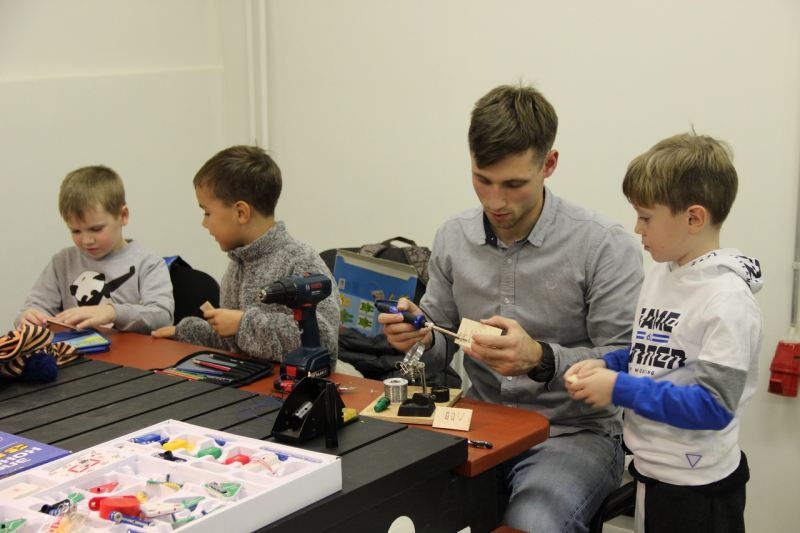
“It often happens that parents pressure their children into choosing something that’s trendy or seems promising, for example taking up robotics even though the child would’ve been better at design. In such cases, you can’t expect good results. Therefore, it’s essential to acquaint the student with various fields, so that they’ll be motivated to attend a course. For this purpose, we conduct introductory lessons where we speak about particular courses and fields, so that the children can understand whether they are interested or not,” comments the technopark’s head.
Business projects and creativity
Apart from getting basic knowledge in robotics, physics and programming, a student can also create their own project at ITMO.KIDS summer school. It takes place during the holidays so the kids can study for several days without interruption. In order to participate, they have to file an application and pass the selection.
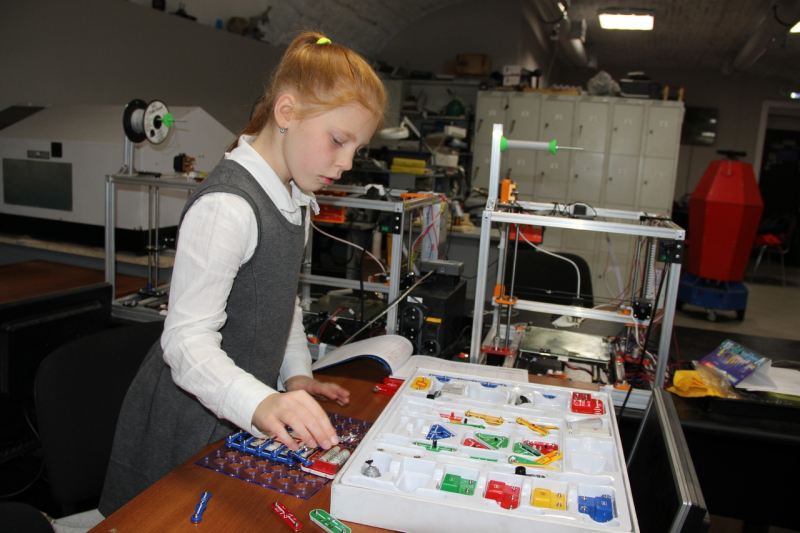
The younger kids spend five days getting acquainted with each of the fields in the following format: every day, they attend a lecture and a workshop. They can communicate with the professors and students and get a more detailed information about various professions in every field.
For the children of seventh to tenth grade, the summer school is a real startup contest. On the first day, they attend an introductory lesson where they are split into teams and come up with a technological project that they will work on. Then, they are told about the basics of business and the key aspects of presentation. On the last day, they demonstrate their projects to the jury in a way that they would’ve done this with real investors at a technopark.
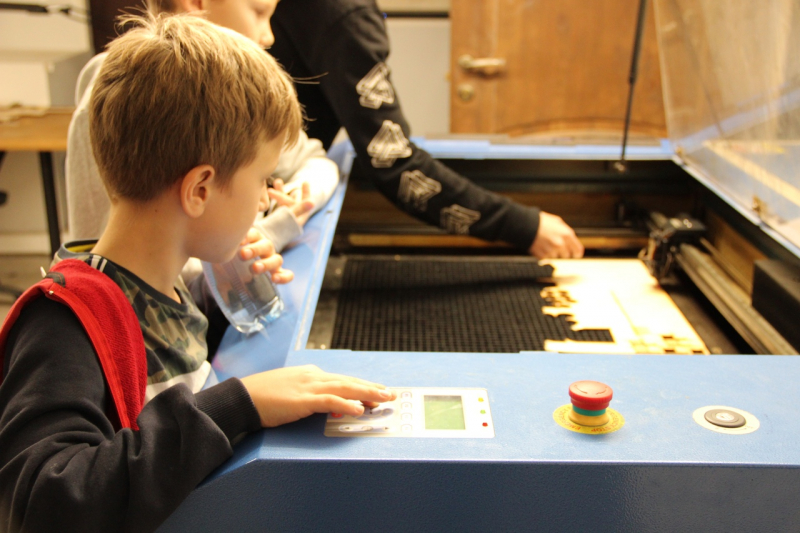
“We’ve already had interesting projects: our students developed a smart bus stop, a smart garbage bin, a robot artist and a robot waiter. Needless to say, those are child’s projects, but if we see potential in them, we refer the children to startup accelerators. We also give them advice on developing their ideas,” says Alexey Schekoldin.
